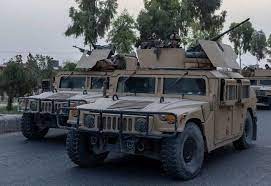Effect on India of the Maldives President’s party’s win in favor of China
The People’s National Congress (PNC), headed by Maldivian President Mohamed Muizzu, has emerged victorious in the legislative elections, taking 71 out of 93 seats, marking a momentous political shift.

This win not only strengthens Muizzu’s position of authority in the Maldives but also signals a significant change in the dynamics of the region, especially with regard to India.
ELECTION RESULTS AND THE POLITICAL CONTEXT
In contrast to the Maldivian Democratic Party’s (MDP) pro-India posture, President Muizzu, whose stance has been noticeably pro-China, used nationalist language and a “India out” campaign to gather major support.
The MDP, which had previously controlled a majority of the parliament, was decisively defeated, winning a mere 12 seats.
This change is significant because it represents a larger voter disenchantment with the MDP’s policies, particularly its alleged over-alignment with India.
CONSEQUENCES FOR INDIA
The massive majority that Muizzu’s party now controls in the parliament as a result of his election may put more pressure on ties between India and the Maldives. India has historically been a major political force in the Maldives, seeing the island country as a vital component of its strategically important maritime neighborhood.
Nonetheless, policies and diplomatic interactions favoring Beijing show that Muizzu’s government is becoming more and more biased in China’s direction.
Significant infrastructure contracts given to Chinese companies and changes in policy that lessen the military presence of India on the islands are examples of this pro-China approach.
These actions have not only improved relations between China and the Maldives but have also hinted at a possible shift in the Maldives’ foreign policy away from India.
ECONOMIC AND STRATEGIC ASPECTS
Given the Maldives’ strategic position in the Indian Ocean as a maritime chokepoint that affects important sea routes, India places a premium on the stability and direction of Maldivian politics.
New Delhi sees the growing Chinese influence in the Maldives as a danger to its maritime security and a challenge to its regional supremacy.
Indian assistance and investment have had a major positive economic impact on the Maldives, fostering not just economic development but also socio-political links between the two countries.
These economic relations may be impacted by the present political realignment, particularly if Muizzu’s administration keeps giving preference to Chinese investments over Indian contributions.
THE MALDIVES, CHINA, AND INDIA
Despite recent efforts by President Muizzu to acknowledge India’s role and support to Maldivian development, Beijing seems to have a greater geopolitical and strategic inclination.
The future of relations between the Maldives and India will be greatly influenced by this delicate balancing act between seeking deeper strategic ties with China and acknowledging historical and economic ties with India.
India may need to reassess its strategy for the Maldives, striking a balance between its strategic objectives and the need to have positive interactions with Muizzu’s administration.
The intricacies of this connection may be managed by carrying on the conversation and perhaps altering the parameters of participation.
The outcome of this election will probably have a long-lasting effect on the regional power dynamics in the Indian Ocean, indicating a potential shift in the geopolitical allegiances of this strategically located country as the Maldives navigates its internal political landscape and its external diplomatic engagements.







